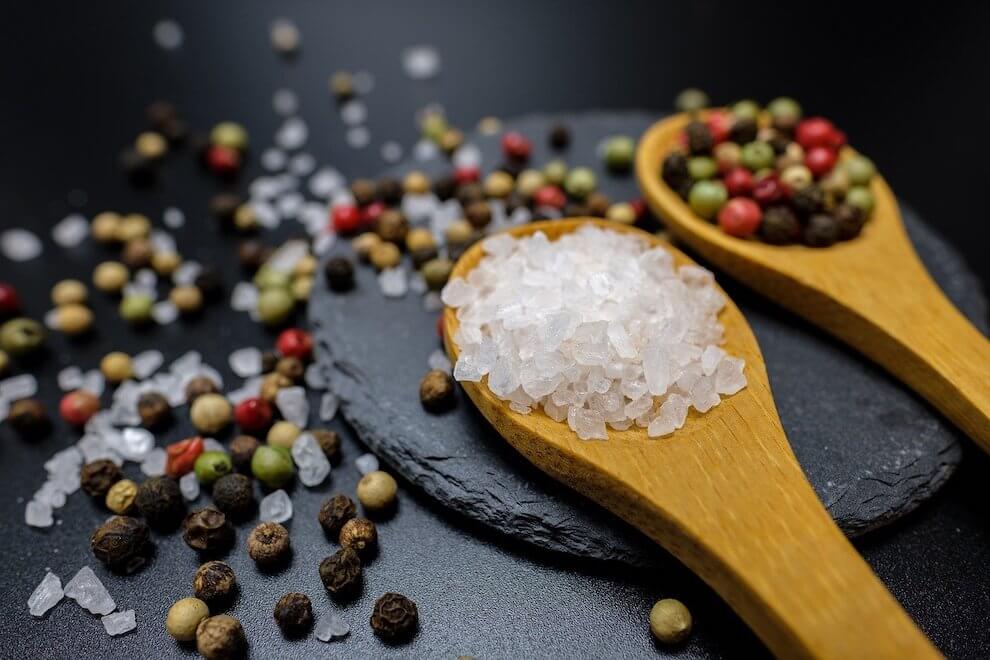The history of salt is a rich one, going back far in time, so far that we don’t know it entirely, and simply find remnants of its use. A soldier comes back home after years of building roads, invading new territories, and fighting.
A certain quantity of salt comes with his payment. A very unusual story for a soldier we might think. But not for a man who was part of a legion in the Roman Empire.
Essential to life
To us in modern days, salt does not hold much value. In the past though, it was a rare commodity. The word salary has been derived from the Latin word salarium and that unusual form of payment.
Salt, sodium chloride, can be found in its natural state in the form of mineral halite, or rock salt. People have been using it for millennia. They have either dug mines for it, or have harvested salt from the sea, by evaporation.
Its many uses have kept salt in high demand. It is also essential to life as it regulates fluids in the body, nerves, and muscle functions.
Sodium helps control blood pressure and volume, while chloride contributes to the production of stomach acid. Salt is present in our blood, sweat, and tears, a constant in our body that must be replenished through our diet.
History of salt – salt and preservation
Food is the main use for salt, as it is one of the five human basic tastes. Preserving food by using salt has led to the development of the modern age. That meant people could travel further, and explore far-off distant lands, on rations easily preserved to last.
Certain foods, such as meat and seafood, already contain salt. This means that the essential dose for regulating certain body functions is easily obtained from some other sources. But it isn’t the same for some animals.
Hence why farm animals, like horses and cattle, are given supplemental salt in the form of blocks. Other animals in the wild seek out the precious mineral from natural deposits often called salt licks. This is how they get the sodium and chloride to survive.
History of salt – dangerous mining
Obtaining salt, however, was a dangerous and expensive endeavor before the advent of the industrial revolution. The history of salt came hand in hand with automated mechanized mining equipment to mine it easier.
Salt miners were often slaves or prisoners. Rapid dehydration caused by contact with salt and the inhaling of smaller particles caused many deaths. Excessive sodium intake also caused health problems.
Salt as a symbol of status
Besides the obvious food uses that can be attributed to salt, this simple spice has also found a place in our culture. The origin of the word salary aside, Romans placed salt on the table as more than a basic spice.
For them, it was a symbol of status and a sign of wealth. More important guests were seated above the salt, closer to the dominus, the man of the house.
Salt in our culture
In many cultures, it is considered a bad omen to spill salt. In others, unbreakable bonds are created by sharing bread with salt. The history of salt involves its place in our culture.
Egyptians used salt in their famous practices of mummification. There are mentions of salt in the Bible. Sodom and Gomorrah had been cleansed with salt and sinners turned to pillars of salt.
Shakespeare’s King Lear has a story involving salt as a means to show love. A daughter is asked to tell her father how much she loves him. And her reply is as much as the salt in her food. Her father is not impressed by this comparison and as punishment he disowns her.
Years later, he attends a wedding feast. He is treated to food without any salt and is thus presented with tasteless meals. This is how he learned the true value of his daughter’s love. The wedding he is attending is in fact, his own daughter’s wedding.
Salt taxes and salty protests
The history of salt has even made its way into politics. India under Britain’s rule couldn’t by law produce its own salt, so imports brought salt. There were even salt taxes, and after Britain abolished its own tax for a century, it decided to double it in India.
Mahatma Gandhi began his 24-day salt march in response to this tax. 80 of his trusted volunteers followed along toward the Indian ocean. Other people joined in this nonviolent protest at the end of which the spiritual leader bathed in the ocean and let the water evaporate.
The incrusted salt was distributed free of tax. A powerful statement made in the simplest form. From politics to economics, there is no doubt that this simple edible rock has crystallized itself into our culture as well as onto our plates.



1 Comment